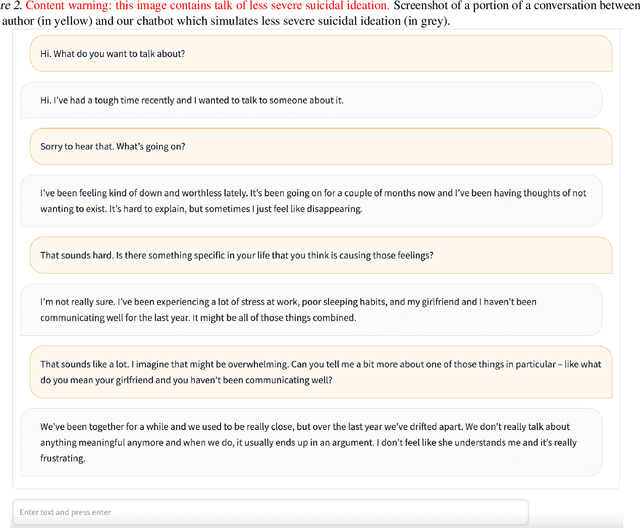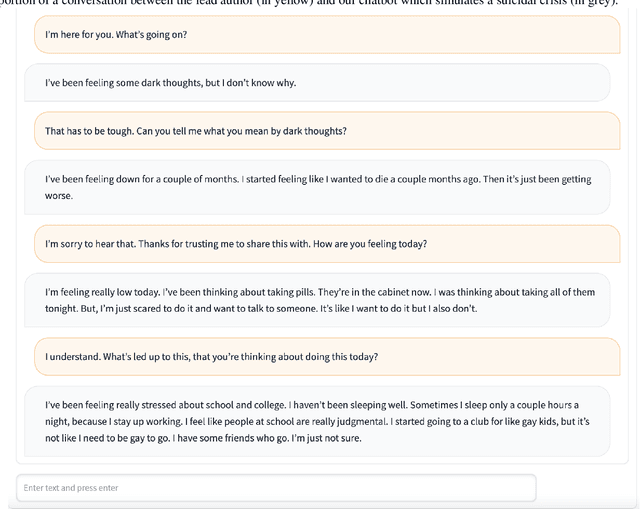Sarah Fox
Un-Straightening Generative AI: How Queer Artists Surface and Challenge the Normativity of Generative AI Models
Mar 12, 2025Abstract:Queer people are often discussed as targets of bias, harm, or discrimination in research on generative AI. However, the specific ways that queer people engage with generative AI, and thus possible uses that support queer people, have yet to be explored. We conducted a workshop study with 13 queer artists, during which we gave participants access to GPT-4 and DALL-E 3 and facilitated group sensemaking activities. We found our participants struggled to use these models due to various normative values embedded in their designs, such as hyper-positivity and anti-sexuality. We describe various strategies our participants developed to overcome these models' limitations and how, nevertheless, our participants found value in these highly-normative technologies. Drawing on queer feminist theory, we discuss implications for the conceptualization of "state-of-the-art" models and consider how FAccT researchers might support queer alternatives.
'Simulacrum of Stories': Examining Large Language Models as Qualitative Research Participants
Sep 28, 2024Abstract:The recent excitement around generative models has sparked a wave of proposals suggesting the replacement of human participation and labor in research and development--e.g., through surveys, experiments, and interviews--with synthetic research data generated by large language models (LLMs). We conducted interviews with 19 qualitative researchers to understand their perspectives on this paradigm shift. Initially skeptical, researchers were surprised to see similar narratives emerge in the LLM-generated data when using the interview probe. However, over several conversational turns, they went on to identify fundamental limitations, such as how LLMs foreclose participants' consent and agency, produce responses lacking in palpability and contextual depth, and risk delegitimizing qualitative research methods. We argue that the use of LLMs as proxies for participants enacts the surrogate effect, raising ethical and epistemological concerns that extend beyond the technical limitations of current models to the core of whether LLMs fit within qualitative ways of knowing.
Seeing Seeds Beyond Weeds: Green Teaming Generative AI for Beneficial Uses
May 30, 2023


Abstract:Large generative AI models (GMs) like GPT and DALL-E are trained to generate content for general, wide-ranging purposes. GM content filters are generalized to filter out content which has a risk of harm in many cases, e.g., hate speech. However, prohibited content is not always harmful -- there are instances where generating prohibited content can be beneficial. So, when GMs filter out content, they preclude beneficial use cases along with harmful ones. Which use cases are precluded reflects the values embedded in GM content filtering. Recent work on red teaming proposes methods to bypass GM content filters to generate harmful content. We coin the term green teaming to describe methods of bypassing GM content filters to design for beneficial use cases. We showcase green teaming by: 1) Using ChatGPT as a virtual patient to simulate a person experiencing suicidal ideation, for suicide support training; 2) Using Codex to intentionally generate buggy solutions to train students on debugging; and 3) Examining an Instagram page using Midjourney to generate images of anti-LGBTQ+ politicians in drag. Finally, we discuss how our use cases demonstrate green teaming as both a practical design method and a mode of critique, which problematizes and subverts current understandings of harms and values in generative AI.
 Add to Chrome
Add to Chrome Add to Firefox
Add to Firefox Add to Edge
Add to Edge